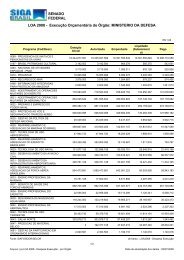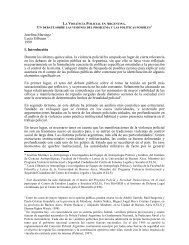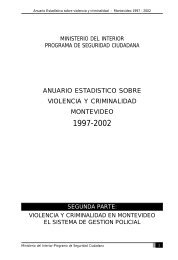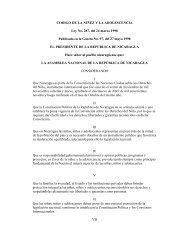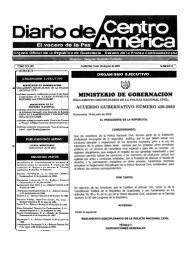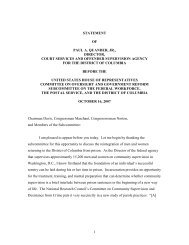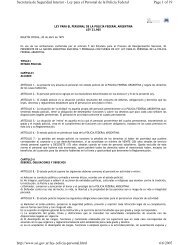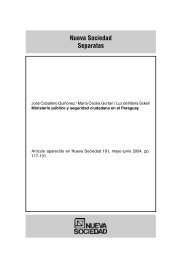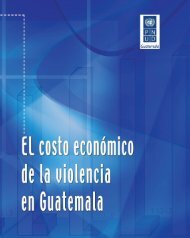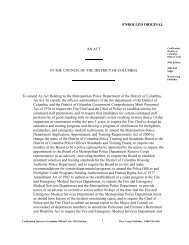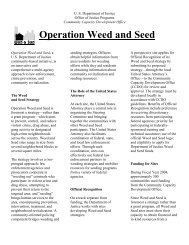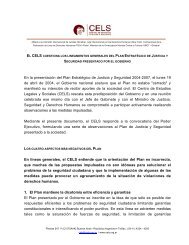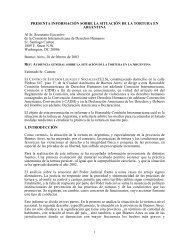Venezuela: The Life and Times of the Party System - Political ...
Venezuela: The Life and Times of the Party System - Political ...
Venezuela: The Life and Times of the Party System - Political ...
Create successful ePaper yourself
Turn your PDF publications into a flip-book with our unique Google optimized e-Paper software.
to destroy his enemies. In so doing, he definitively closed <strong>the</strong> books on nineteenth-century<br />
political life. Traditional political parties <strong>and</strong> military caudillos disappeared; political opposition<br />
<strong>and</strong> protest soon began to take new tacks, working for <strong>the</strong> creation <strong>of</strong> mass politics <strong>and</strong> political<br />
democracy.<br />
<strong>The</strong> development <strong>of</strong> <strong>the</strong> petroleum industry from <strong>the</strong> 1920s on made for radical<br />
discontinuities with <strong>the</strong> past. Agriculture was destroyed, permanent national armies <strong>and</strong><br />
bureaucracies were created, roads were built <strong>and</strong> massive waves <strong>of</strong> internal migration began to<br />
travel on <strong>the</strong>m. <strong>The</strong> political parties whose conflicts had dominated nineteenth-century politics<br />
left no trace at all.<br />
<strong>The</strong> new social groups <strong>and</strong> forces being created had little connection to older elites or to<br />
<strong>the</strong> social or political structures <strong>of</strong> <strong>the</strong> past. <strong>The</strong>ir new experiences <strong>and</strong> urgent needs found no<br />
legitimate organizational expression, few interlocutors, <strong>and</strong> no reliable allies. Effective repression<br />
saw to that, <strong>and</strong> thus in curious <strong>and</strong> doubtless unintended ways <strong>the</strong> Gomez autocracy laid <strong>the</strong><br />
bases <strong>of</strong> modern political life, leaving an open field <strong>and</strong> a growing potential clientele to <strong>the</strong><br />
organizers <strong>of</strong> new movements. Most significant among <strong>the</strong>se were <strong>the</strong> university students <strong>and</strong><br />
trade unionists who first appear on <strong>the</strong> national scene in <strong>the</strong> 1920s, later returning from exile <strong>and</strong><br />
prison after <strong>the</strong> dictator’s death in late 1935. As Ramon J. Velasquez puts it, <strong>the</strong> <strong>Venezuela</strong> <strong>the</strong>y<br />
found was “like plowed l<strong>and</strong>, waiting for <strong>the</strong> seed” (Velasquez, 1973, xix-xx).<br />
It is thus fair to say that modern <strong>Venezuela</strong>n life began with <strong>the</strong> death <strong>of</strong> Gomez.<br />
Subsequent political history falls into four broad periods: 1936-45, 1945-48, 1948-58, <strong>and</strong> <strong>the</strong><br />
post-1958 years when democracy is reestablished, successfully defended, <strong>and</strong> consolidated.<br />
Here we review <strong>the</strong> pre-1958 years very briefly <strong>and</strong> <strong>the</strong>n consider <strong>the</strong> democratic period in closer<br />
detail.<br />
<strong>The</strong> decade after 1935 witnessed both <strong>the</strong> conception <strong>and</strong> birth <strong>of</strong> mass politics in<br />
<strong>Venezuela</strong>. Exiles returned eager to organize a new kind <strong>of</strong> political life that would exp<strong>and</strong><br />
politics <strong>and</strong> opposition beyond student protest or military conspiracy to include what are now<br />
commonly known as “popular sectors.” From its formal beginnings in 1941, Acción Democrática,<br />
still <strong>the</strong> nation’s dominant party, has called itself “<strong>the</strong> party <strong>of</strong> <strong>the</strong> people,” brokering a marriage <strong>of</strong><br />
needs <strong>and</strong> interests between small-town middle-class organizers <strong>and</strong> <strong>Venezuela</strong>’s masses <strong>of</strong><br />
dispossessed so powerful that repression could no longer eliminate groups: it just drove <strong>the</strong>m<br />
underground.<br />
Gomez was followed in <strong>of</strong>fice by his Minister <strong>of</strong> War <strong>and</strong> designated successor, Gen.<br />
Eleazar Lopez Contreras, who tried to keep <strong>the</strong> lid on change. Incipient trade unions <strong>and</strong> political<br />
groups were banned, open mass activities were prohibited, <strong>and</strong> control <strong>of</strong> <strong>the</strong> army <strong>and</strong> state<br />
machine remained in <strong>the</strong> h<strong>and</strong>s <strong>of</strong> <strong>the</strong> Andean group that had ridden to victory with Gomez.<br />
Lopez Contreras was succeeded five years later by his Minister <strong>of</strong> War, Gen. Isaias Medina



